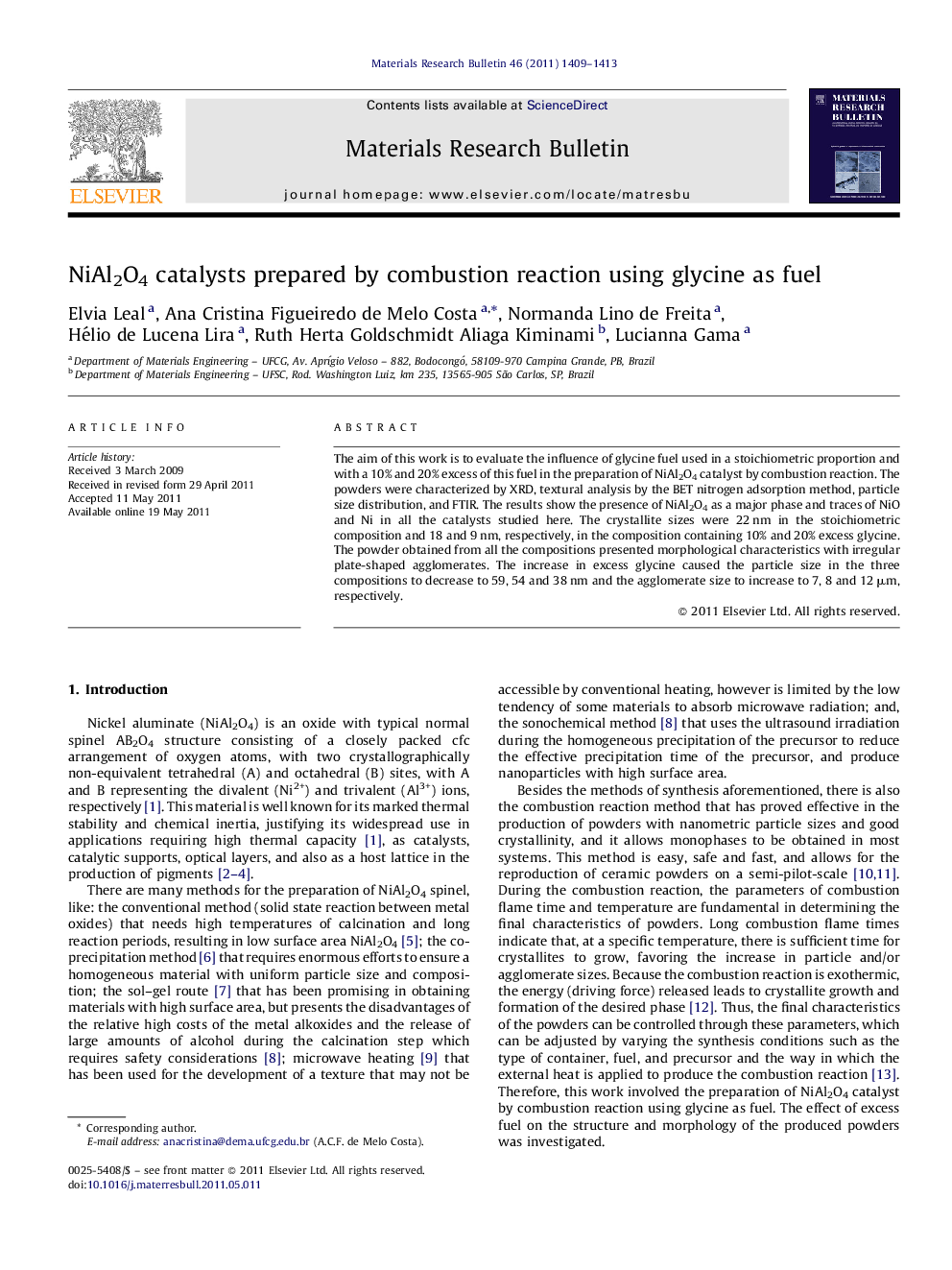| کد مقاله | کد نشریه | سال انتشار | مقاله انگلیسی | نسخه تمام متن |
|---|---|---|---|---|
| 1490312 | 992322 | 2011 | 5 صفحه PDF | دانلود رایگان |

The aim of this work is to evaluate the influence of glycine fuel used in a stoichiometric proportion and with a 10% and 20% excess of this fuel in the preparation of NiAl2O4 catalyst by combustion reaction. The powders were characterized by XRD, textural analysis by the BET nitrogen adsorption method, particle size distribution, and FTIR. The results show the presence of NiAl2O4 as a major phase and traces of NiO and Ni in all the catalysts studied here. The crystallite sizes were 22 nm in the stoichiometric composition and 18 and 9 nm, respectively, in the composition containing 10% and 20% excess glycine. The powder obtained from all the compositions presented morphological characteristics with irregular plate-shaped agglomerates. The increase in excess glycine caused the particle size in the three compositions to decrease to 59, 54 and 38 nm and the agglomerate size to increase to 7, 8 and 12 μm, respectively.
The reaction temperature was found to remain is practically constant throughout the interval preceding ignition, after which the temperature increased abruptly, reaching the maximum combustion temperature. All the reactions occurred in a matter of minutes, i.e., 5.8, 5.8 and 6 min, respectively, for compositions GES, 10GE and 20GE. Among the benefits of the combustion synthesis method are low processing cost, energy efficiency, high production rate and, especially, short reaction periods when compared with conventional methods (solid state reaction) to prepare ceramic oxide powders that require high calcination temperatures and long reaction periods.Figure optionsDownload as PowerPoint slideHighlights
► We use a simple, fast and inexpensive technique for processing NiAl2O4 catalyst nanopowders.
► We study the preparation of powders with nanometric sized particles.
► This material is extremely attractive for use in the development of new catalysts for a variety of chemical processes.
► Nanometric sized particles depend of the amount of glycine used in the synthesis process.
Journal: Materials Research Bulletin - Volume 46, Issue 9, September 2011, Pages 1409–1413